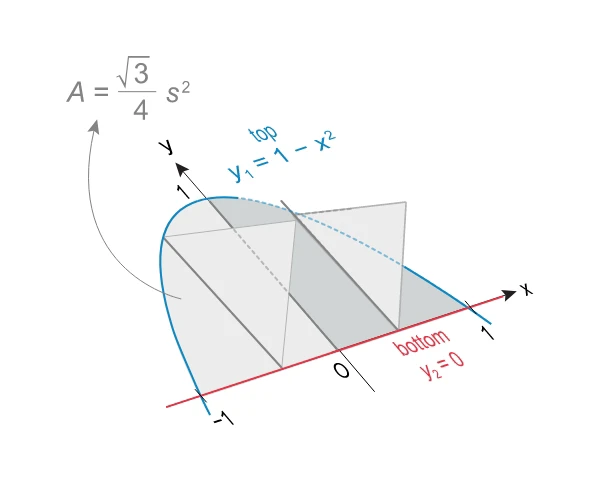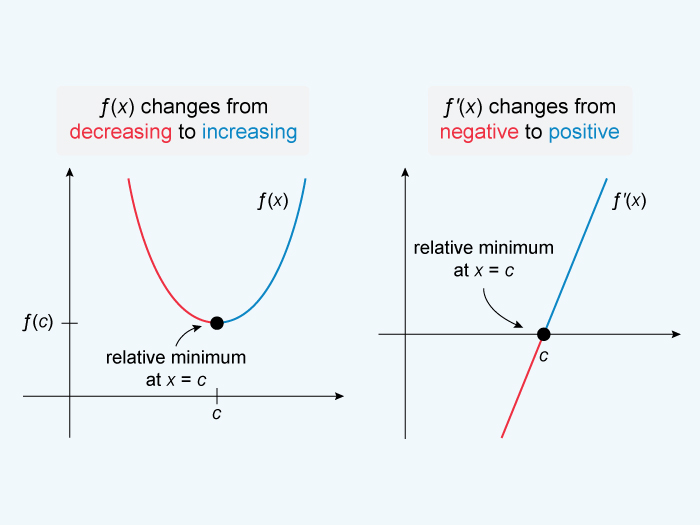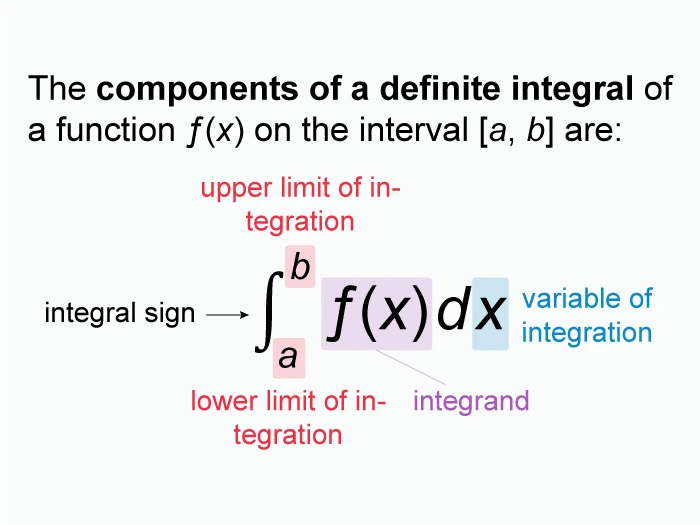AP® Calculus AB Score Guide
Have you decided to take the AP® Calculus AB exam? One of the first steps to prepare effectively for the exam is to familiarize yourself with the scoring criteria. Understanding the scoring pattern for the exam can help you devise a strategic study plan. This approach also enables you to concentrate on specific sections of the exam where you think you can score high and strengthen your skills in more challenging areas. If you are taking the AP Calc AB exam soon and are curious about how it is scored, you’ve come to the right place. This is your guide to the AP Calculus AB scoring system.
How Is the AP Calculus AB Exam Scored?
AP Calculus AB exam consists of two sections: multiple-choice questions (MCQs) and free-response questions (FRQs). 45 MCQs comprise Section I of the exam, and 6 FRQs or long-answer questions constitute Section II. Each section carries 50% of the total composite score, totaling an overall score of 108 points.
| Section I | 45 MCQs | 54 points |
| Section II | 6 FRQs | 54 points |
| Subtotal | 108 points | |
As you can see from the table above, Section 1 of the exam consists of 45 questions, with a total of 54 points available in the multiple-choice (MCQ) section. Each MCQ in this section is worth approximately 1.2 points if answered correctly. It’s important to note that there is no penalty for wrong answers, so it’s always better to make an educated guess rather than leave a question unanswered.
In Section Two, there are a total of six questions, each worth 9 points. These 9 points are divided into two criteria. Firstly, you’ll be awarded points for demonstrating the correct steps to solve a problem. Secondly, you’ll earn points for arriving at the correct answer. In this section, known as the ‘step-marking’ method, you will receive partial points for each critical step of the problem that you approach correctly, even if you make mistakes later on and end up with an incorrect answer.

AP Calculus AB Raw Score Conversion
Your final score is determined by the number of correct points earned out of a possible 108. This composite score is then converted into a number on the AP score scale, which ranges from 1 to 5. Please note that the College Board® keeps the conversion process confidential. Therefore, your composite score on the AP Exam will not be publicly disclosed.
Considering these AP Calculus AB scoring guidelines, let's examine how your AP scores can impact your college applications. We will determine which AP scores can get you recommendations, placements, and college credits.
AP Calculus AB Scoring Table
After your Calculus AB exam scores have been recorded on the AP grading scale, they will be sent to the respective colleges that you’ve selected. If you want to learn how to request that the College Board send your AP scores to your college, check out our page on AP Exam Scores.
Below is the AP score table showing the conversion of AP scores into equivalent college grades for the Calc AB exam:
| AP Exam Score | College Grade Equivalent | Qualification |
|---|---|---|
| 5 | A+ or A | Extremely Well-Qualified |
| 4 | A-, B+, or B | Very Well-Qualified |
| 3 | B-, C+, or C | Qualified |
| 2 | — | Possibly Qualified |
| 1 | — | No Recommendation |
The rule of thumb would be to aim for a score of 3 or higher if you’re considering getting college credits and Advanced Placement® for your AP Calc AB exam score. Always remember to check with the colleges you intend to apply to on their minimum requirements.
“Recent research from the College Board found that students who achieve a score of 2 in AP Calculus AB earn higher grades when taking the course in college than students who did not take AP Calculus AB.”
AP Calculus AB Score Distributions
Taking the AP exam for Calculus AB has many other benefits. Check out our AP Calculus AB exam guide to discover why it could benefit your career.
In 2023, a total of 273,987 students took the AP Calculus AB exam, and 58% of test-takers scored a 3, 4, or a 5. Over the past four years (2020-2023), this percentage has averaged around 56.4%. That's an encouraging success rate, considering how challenging AP Calc AB can be.
Let's crunch some numbers below to get an idea about the AP Calculus AB score distributions:
| AP Score | % of Students 2023 | % of Students 2022 | % of Students 2021 | % of Students 2020 | Average for the past four years |
|---|---|---|---|---|---|
| 5 | 22.4% | 20.4% | 17.6% | 19% | 19.8% |
| 4 | 16.2% | 16.1% | 14.1% | 20.4% | 16.7% |
| 3 | 19.4% | 19.1% | 19.3% | 20.5% | 19.5% |
| 2 | 21.7% | 22.6% | 25.3% | 24.1% | 23.4% |
| 1 | 20.3 % | 21.7 % | 23.7 % | 16 % | 20.4% |
| Avg. Success Rate (3 & above) | 61.4% | 51% | 55.4% | 58% | 56.4% |
As you can see from the table above, the scores on the Calculus AB exam were higher in 2021 compared to previous years. Across the board, more than 50% of students scored with a 3 or higher. AP Calculus AB is a challenging subject, but with the right study tools, course instruction, and dedication, you can achieve a score of 5.
UWorld’s online AP Calculus AB practice exams will help you get there. By taking practice tests, you can track your progress and address any areas that may be confusing, allowing you to build a solid foundation of core calculus concepts. Additionally, you can make quick notes and use UWorld's flashcards to review concepts and theorems efficiently when preparing for the exam.
Scoring pattern for the 2023 and 2022 AP Calculus AB exams
To secure a good AP Calc AB score, you need to understand the scoring pattern of the exam. This will help you identify where you can excel and which concepts you should give more attention to. So, let's dive into the 2023 AP Calculus AB scoring pattern and see how the scores were distributed across the multiple-choice and free-response sections:
In the multiple-choice section, the following trends emerged:
- The most challenging unit for AP Calculus AB students was Unit 5: Analytical Applications of Differentiation, where only 47% of students correctly answered all of the questions.
- The highest-scoring units were Unit 7: Differential Equations (26% of students answered every question right) and Unit 4: Contextual Applications of Differentiation (19% of students answered every question right).
The Free-Response Section showed the following patterns:
- Students scored higher on FRQ 2 (particle motion). 25% of students earned 8-9 of the 9 possible points.
Overall, students performed better on the “no calculator” questions compared to the ones that required a calculator.
For the 2022 pencil-and-paper exam, students scored significantly higher on multiple-choice questions than on the free-response questions.
- The strongest student performance was on Unit 4: Contextual Applications of Differentiation, in which 32% correctly answered 5-6 questions out of the 6 total questions.
- The most challenging unit in the MCQ section was Unit 3: Composite, Implicit, and Inverse Functions. 11% of students earned 0 points on those questions.
FRQ 3 on graphical analysis was the toughest question on the exam.
For the 2021 pen-and-paper exam, students scored significantly higher on the Multiple-Choice section than the Free-Response questions.
In the multiple-choice section, the following trends emerged:
- Students demonstrated the strongest proficiency in Unit 4: Contextual Applications of Differentiation, with 11% of students earning a perfect score across the questions in this unit.
- On average, students scored the lowest on Unit 7: Differential Equations, in which 4% of students answered all questions correctly, and 9% answered none correctly.
The Free-Response Section showed the following patterns:
- The most challenging question for the 2021 exam was Question 3 on the area-volume; disc method. 3% of students earned 7 to 9 points out of a possible 9.
- The highest results were seen in Question 4 on graphical analysis. 14% of students earned 7 to 9 points out of a possible 9.

AP Calculus AB Minimum Score Requirement for College Credits
As we mentioned earlier, most colleges in the U.S. recognize AP exam scores to grant students credit or advanced placement. If you score 3 or higher, you can earn college credits, which may help you graduate from college early. At some colleges, a score of 3 or higher can even allow you the chance to skip the core math course in your first semester. Some colleges offer both advanced placement and credits, which means you’ll earn the credits and also be able to skip the course.
Each institution has its own criteria for recognizing AP scores. Some colleges accept a score of 3, while some demand a 5. Some colleges don’t offer any credit but grant a higher placement based on your AP score. When preparing for your AP Calculus AB exam, it's helpful to know your college’s AP score requirements so you can plan your studies accordingly.
We’ve compiled a list of institutions across the country and the AP scores they accept for admission, which can help you narrow down your search. The list also includes the courses you can skip based on a specific AP score and whether you’ll earn credits for taking the AP Calculus AB exam. Let’s have a look.
| Institution | AP Score | AP Recognition | Credit/Placement type | Credits |
|---|---|---|---|---|
| California State University | 3/4/5 | Credit | Subject to qualifying conditions | 3 |
| Georgia Tech | 4/5 | Credit | MATH 1551 | 2 semester hrs |
| Grinnell College | 3 | Credit | MAT 133 | 4 semester credits after passing MAT 133 (math major credit on approval by Mathematics Dept.) 4 semester credits. |
| 4/5 | MAT-124 or 131 | |||
| Harvard University | 5 | Credit | Subject to other qualifying conditions | 4 |
| Louisiana State University | 3 | Credit | MATH 1431 | 3 credit hrs |
| 4/5 |
Credit + Placement |
MATH 1550 | 5 credit hrs | |
| Massachusetts Institute of Technology | 5 | Placement | 18.01A/18.02A | No credit |
| Mississippi State University | 3/4/5 | Credit | MA 1713 | 3 credit hrs |
| New York University | 4/5 | Credit | MATH-UA 121 | 4 |
| Notre Dame | 5 |
Credit + Placement |
Equivalent course: MATH 10550 |
4 credits towards MATH 10091 |
| Reed College | 5 | Credit | Placement determined in consultation with the faculty | 1 credit |
| Stanford University | 5 |
Credit + Placement |
Math 21 or 51 (Placement subject to Department or Registrar) | 6 quarter units |
| Truman State University |
3 |
Credit + Placement |
MATH 192: Essentials of Calculus | 4 |
| 4/5 | MATH 198: Analytic Geometry & Calculus I | 5 | ||
|
UCLA (School of Letters and Science) |
3/4 |
Credit + Placement |
Calculus | 4 |
| 5 | MATH 31A | |||
| Yale University | 5 | Credit |
MATH 115, MATH 116, or MATH 118 |
1 (subject to other qualifying conditions) |

References
- Student Score Distributions* AP Exams - May 2020. (2020). reports.collegeboard.org. Retrieved January 2022, from https://reports.collegeboard.org/media/pdf/Student-Score-Distributions-2020_1.pdf
- Student Score Distributions* AP Exams - May 2021. (2021). reports.collegeboard.org. Retrieved 2022, from https://reports.collegeboard.org/media/pdf/2021-ap-student-score-distributions_1.pdf
- Student Score Distributions* AP Exams - May 2022. (2022). apcentral.collegeboard.org. Retrieved 2022, from https://apcentral.collegeboard.org/media/pdf/ap-score-distributions-by-subject-2022.pdf
- Student Score Distributions* AP Exams - May 2023. (2023). apcentral.collegeboard.org. Retrieved 2024, from https://apcentral.collegeboard.org/media/pdf/ap-score-distributions-by-subject-2023.pdf
- Packer. (2023, June 30). The 2023 AP Calculus AB scores. twitter.com. Retrieved January 24, 2024, from https://twitter.com/AP_Trevor/status/1674500852122255360?lang=en
- 2021 AP Exam Administration Scoring Guidelines - AP Calculus AB. (2021). apcentral.collegeboard.org. Retrieved January 24, 2024, from https://apcentral.collegeboard.org/media/pdf/ap21-sg-calculus-ab.pdf
- 2021 AP Exam Administration Score Distributions - AP Calculus AB. (2021). apcentral.collegeboard.org. Retrieved January 24, 2024, from https://apcentral.collegeboard.org/media/pdf/ap21-calculus-ab-score-distributions.pdf